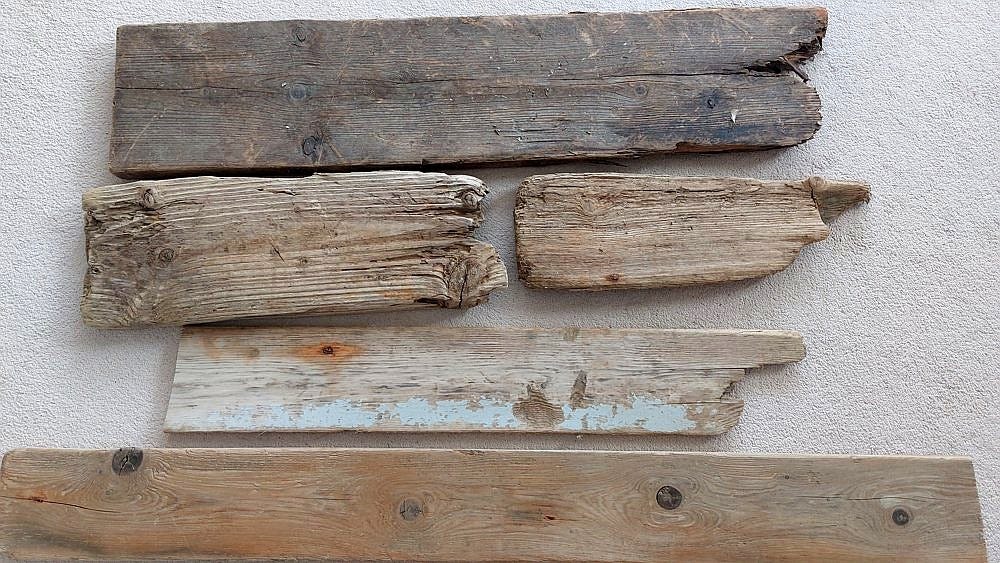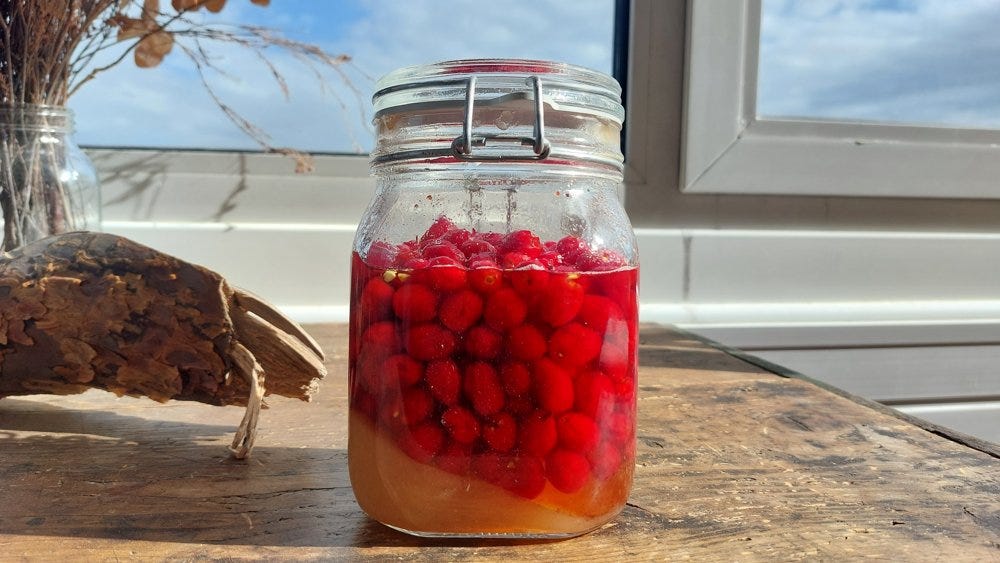Everything Is Free*
We could (if you’re that way inclined) bury you mile-deep in product
Happy Friday!
And a warm welcome from my sick bed, with apologies for missing last week. 🤧
For those of you new around these parts, welcome 👋 My name is David and I’m a writer, outdoor instructor, cyclist-at-large with Thighs of Steel and Expeditions Manager at British Exploring Society.
In this newsletter, I write stories that help you and me understand the world (and ourselves) a little better.
Sometimes I get stuff for free.
Everything Is Free*
Or: Money Is Only One Way Of Doing Things
Capitalism creates abundance.
On shelves, forecourts and websites around the world there is an overwhelming excess of all kinds of goods — whether you’re after bananas, baskets, bricks or Beanie Babies, we could (if you’re that way inclined) bury you mile-deep in product.
All of these products are created for sale and you can buy them with money.
But, because of the abundant — nay, excessive production, you can also acquire anything and everything for free. 🤑
There are two ways of getting everything you want for zero money:
After the original buyer has finished with the thing (ask nicely, don’t snatch!)
Before the thing ever gets sold. (And a certain amount of everything, except rare art and limited edition vinyl, never gets sold. It’s just out there, waiting for you.)
If you think about it, money is one way of solving two problems:
Labour.
Distribution.
1. Labour
It was pointed out to me the other day that I could easily and significantly more cheaply make my own Mexican lentil lunches at home and bring them into work with me.
But instead I pay money to a company called Merchant for them to make my lunch in a factory for me and shovel it into a microwaveable packet. I pay money for Merchant to do the labour.
I think we’re all used to this idea — after all, that’s why most of us dedicate so many hours a day to somebody else’s work goals.
It’s simple: that somebody else pays us money. And then we use that money to pay somebody else to solve our labour issues.
But I find fewer people see that we often use money to solve a distribution problem.
2. Distribution
I know that, somewhere, someone is getting all the Merchant microwaveable lunches they could ever imagine FOR FREE — while muggins over here is paying £1.50 for the privilege. (Never ever pay full price for Merchants; just wait.)
Admittedly, that someone is probably an employee of Merchants. But the principle remains: more Merchants are produced than are sold and eaten. The remainder is either destroyed (😱) or given away for free.
I’m currently midway through building a shoe rack for the hallway. We couldn’t find anything to matched up to our specifications, so I thought — ‘I’ll make one!’
I bought a lovely slab of oak from a sawmill and was on the cusp of a day trip to B&Q for the legs and other shelves when I found myself in Fulham, by the river.
Washed up on the shoreline was lorry-sized pile of flotsam and jetsam — hundreds of pieces of timber that would be perfect for legs and other shelves and much more besides — if I could only squeeze them all into my hatchback Corolla.
I crossed B&Q off my to do list. I had found one of the many places on this great green Earth where timber is free: in this case, the waste of an overproductive economic system.
Money is only one way of doing things.
And it’s not even our most common way of doing things.
Money Is A Wedge (or can be)
For Mark Boyle, who lived without money for four years, money is a wedge that separates us from the consequences of our actions.
On his four years living without money, Mark said:
I experienced how connected and interdependent I was on the people and natural world around me. More than anything else, I discovered that my security no longer lay in my bank account, but in the strength of my relationships with the people, plants and animals around me.
There’s one area where we all live without asking for or expecting the bill: with those we love.
Indeed, we’d be utterly outraged if anyone tried to give us cash in exchange for the dozens of acts of loving kindness that we perform for our friends and family every day.
According to the Child Action Poverty Group, the average cost of raising a child to age 18 is £166,000 for a couple and £220,000 for a lone parent.
But any parental attempt to recoup the bill from their children would be monstrous.
The fact is that most of life is made up of spider’s web networks of cashless exchange, favours and gifts.
Yes, I spend money pretty much every day, but I am reliant on friends, family and neighbours for almost every single moment — certainly all the most precious.
Debt ≠ Obligation
In his critically acclaimed book, Debt: The First 5,000 Years, anthropologist David Graeber explains the difference between a debt and an obligation.
Obligation is what I feel towards another human being after they:
invite me to dinner
lend me a cup of sugar
look after my (hypothetical) dog for the weekend.
Debt is what I feel towards:
the bank for my loan-funded education
work after getting my payslip (but before doing the work)
Shylock after losing his money in an ill-fated mercantile venture.
In short: obligations bond human beings; debts divide us.
As Graeber writes:
The difference between a debt and an obligation is that a debt can be precisely quantified. This requires money.
It follows that, if we remove money from a transaction, it becomes not a debt to be paid, but rather an obligation:
an unspecific generosity,
of similar but crucially not identical value,
to be performed not immediately, but at some appropriate moment in the future, according to the unique needs of the recipient and resources of the obliged.
In this way, exchange by exchange, we could move from a waste economy of division to a gift economy of connection.
We could move to a society where we treat each other more like family by exchanging gifts, sharing food and doing favours for the love, not the lucre.
Gifts In An Open Ecosystem
Or perhaps we can think wider, deeper — the way we exchange gifts within an open ecosystem.
There is no price paid by the birds for the berries. Instead there are mutualisms: through sharing, both grow stronger.
My rosehip syrup stands brewing on the living room table, vitamin medicine for the winter. Free. (Except, admittedly, the sugar.)
Yes, I could have gone to Boots and bought Beechams — but then I wouldn’t have learned anything about the finding, gathering, preparing and processing of rosehips.
My hour of foraging in Crystal Palace Park brings me closer to where I live, in a way that seems unlikely had I picked up a cold and flu remedy from the supermarket shelves.
Money really is only one way of doing things.
(And not a very satisfactory one, all in all.)
—
I’ve written about this sort of thing before and this article steals huge swathes develops the ideas of two articles in particular: Money Is Not Generosity and We All Live Moneyless.
Three Tiny Big Things
1. Tourism = 10.4% Global GDP
Well, this is one of the more depressing articles I’ve read in a while. I don’t know if my thinking is in a better place before or after. I’ll let you decide for yourself.
Each revolution designed to make travel more accessible and convenient seems, in time, to exact lamentable collateral costs.
[…]
Travel is an expression of democratic freedom and the economic lifeblood for millions; tourism is an instrument of capitalist expropriation, an engine of inequality.
[…]
For somewhere to matter, it had to be beheld, Yeoman insisted. “If you want people to genuinely care about a place, they need to make the physical effort to go there,” he said. Would anyone bother to repaint the Eiffel Tower, or would it be left to rust?
2. 'Mother Earth is not asking us to save her. She is demanding that we respect her.'
A stark warning from Nemonte Nenquimo, the co-founder of Amazon Frontlines. Pairs optimistically with Jane Goodall:
We have this expression ‘think globally, act locally’, but it’s the wrong way around.
If you think locally, you see that you can make a difference and you want to do more.
And then you realise that around the globe there are other people acting, who are doing their little bit — and millions of little bits add up to big change.
I found both quotes in Fix The News and the second in particular aligns with the latest episode of The Happiness Lab: How to Make a Difference (Happily)
3. Size of hiker ≠ Size of backpack
In working with students at Colorado Outward Bound on land sections of outward bound courses, I noticed that hikers with smaller frames were often able to carry as much weight as hikers with larger frames who were otherwise of similar fitness.
And so Mike O’Shea did the physics:

Thank You
Huge thanks to all the paying subscribers who helped make this story possible. You know who you are. Thank you. 💚
If you enjoyed this one, then go ahead and tell me. It’s the only way I’ll know. You can tap the heart button, write a comment, share the newsletter with friends, or simply reply to this email.
If you’re not into the whole Substack subscription thing, then you can also make a one-off, choose-your-own-contribution via PayPal. That’d make my day.
As always, thank you for your eyeballs and thanks for your support.
Big love,
dc:





I've quite likely already mentioned to you my friend Jon (AKA "Money Burning Guy") and the Church of Burn which he founded - https://substack.com/@churchofburn - Jon (and his book "The Money Burner's Guide") has taught me so much about money, what it is and, perhaps more importantly, what it isn't. When I first encountered Jon and his obsession with burning money, I thought "harmless nutter", but the subsequent 8 years has led me to think he's doing "the Lord's work". It's also thanks to Jon that I got to perform on the same bill as David Graeber, at 2019's Church of Burn, where we sent nearly £1,000 up in smoke.